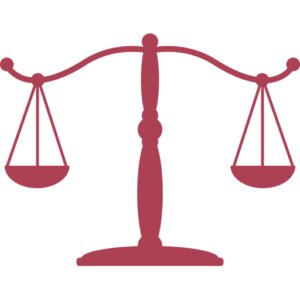Best Native People Lawyers in Netherlands
Share your needs with us, get contacted by law firms.
Free. Takes 2 min.
Or refine your search by selecting a city:
List of the best lawyers in Netherlands
About Native People Law in Netherlands
The term "Native People" isn't commonly used in the context of the Netherlands, as the country does not have a significant Indigenous population similar to those in countries like the United States, Canada, or Australia. Instead, the Netherlands has a rich history involving various cultural groups, including those in the Caribbean parts of the Kingdom of the Netherlands, such as Aruba, Curaçao, and Sint Maarten. In legal terms, issues related to native or indigenous peoples in these regions may include matters of cultural preservation, land rights, and autonomy. The legal system in the Netherlands recognizes the importance of preserving cultural heritage and may involve specific laws and protections in these contexts.
Why You May Need a Lawyer
People may require legal help regarding Native People in the Netherlands for several reasons:
- Understanding and protecting cultural heritage and indigenous rights.
- Navigating legal issues related to land and property rights, especially if they involve territorially differentiated areas or historical claims.
- Advocacy and support in matters of governmental policy that may affect native or culturally distinct groups within the Netherlands and its territories.
- Assistance with regulations concerning social, economic, and political rights unique to specific cultural groups.
Local Laws Overview
The Netherlands does not have a distinct set of indigenous laws comparable to those in countries like the United States. Nonetheless, certain laws protect cultural heritage and regional autonomy within its territories. Important legal aspects to consider include:
- Cultural Heritage Law: Protects the cultural history and artifacts of various regions, aiming to preserve historical knowledge and heritage.
- Autonomy and Governance: Parts of the Kingdom of the Netherlands, such as Aruba and Curaçao, have a degree of self-governance, with separate legal and governmental systems for dealing with local issues including cultural and native affairs.
- Anti-Discrimination Laws: Ensure that no individual or group is discriminated against based on their cultural or ethnic background.
Frequently Asked Questions
Are there tribes or indigenous communities recognized in the Netherlands?
No, the Netherlands does not recognize any indigenous tribes within its European territories.
What legal protections exist for cultural heritage in the Netherlands?
The Netherlands provides legal protection for cultural heritage through legislation that preserves and safeguards historical sites and cultural practices.
How does the Netherlands address issues involving its Caribbean territories?
Through autonomous governance arrangements, where these territories manage many of their own affairs while remaining part of the Kingdom of the Netherlands.
Is there legal support for indigenous rights in Dutch laws?
While not specified for indigenous rights per se, Dutch laws provide strong anti-discrimination measures and cultural preservation mandates.
Can native cultural practices be legally protected in the Netherlands?
Yes, cultural practices can be protected under laws safeguarding intangible heritage.
How can one address discrimination on the basis of cultural identity legally?
Individuals can seek recourse through anti-discrimination laws and may approach the Netherlands Institute for Human Rights.
Are there legal avenues for resolving land disputes related to cultural claims?
Yes, the Dutch legal system provides mechanisms for resolving property disputes, potentially including cultural or historical claims.
How can one approach the Dutch government on matters dealing with native issues?
Through official channels such as local municipal governments or relevant ministries like the Ministry of Education, Culture and Science.
What are my rights concerning language and cultural education?
Dutch law may protect cultural education rights, especially in retaining and promoting regional languages and customs.
How does the legal system protect cultural minorities in the Netherlands?
Through various laws and policies aimed at integration and non-discrimination while fostering cultural diversity.
Additional Resources
For those seeking more information or legal advice, consider the following resources:
- The Netherlands Institute for Human Rights for issues related to discrimination and cultural rights.
- The Ministry of Education, Culture and Science offers insights into cultural heritage preservation.
- Consult local municipal offices for specific regulations and cultural projects in their respective areas.
Next Steps
If you require legal assistance regarding native issues in the Netherlands, you may want to:
- Contact a legal professional with expertise in cultural and heritage law.
- Reach out to relevant governmental bodies, such as cultural offices in municipalities.
- Seek guidance from organizations specializing in human rights and cultural diversity.
Understanding and navigating legal landscapes concerning cultural rights and native issues can be complex, but utilizing these resources and following the appropriate channels can help in finding the necessary support and solutions.
Lawzana helps you find the best lawyers and law firms in Netherlands through a curated and pre-screened list of qualified legal professionals. Our platform offers rankings and detailed profiles of attorneys and law firms, allowing you to compare based on practice areas, including Native People, experience, and client feedback.
Each profile includes a description of the firm's areas of practice, client reviews, team members and partners, year of establishment, spoken languages, office locations, contact information, social media presence, and any published articles or resources. Most firms on our platform speak English and are experienced in both local and international legal matters.
Get a quote from top-rated law firms in Netherlands — quickly, securely, and without unnecessary hassle.
Disclaimer:
The information provided on this page is for general informational purposes only and does not constitute legal advice. While we strive to ensure the accuracy and relevance of the content, legal information may change over time, and interpretations of the law can vary. You should always consult with a qualified legal professional for advice specific to your situation.
We disclaim all liability for actions taken or not taken based on the content of this page. If you believe any information is incorrect or outdated, please contact us, and we will review and update it where appropriate.
Browse native people law firms by city in Netherlands
Refine your search by selecting a city.














